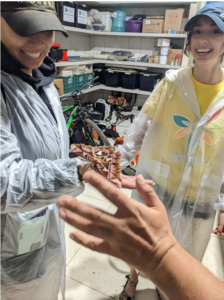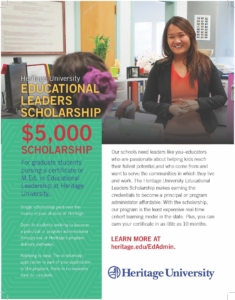All Four Years, All Right Here!
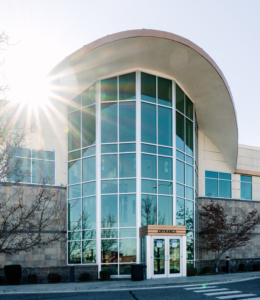
All Four Years, All Right Here!
Providing access to college degrees at remote locations across Washington State is nothing new for Heritage University. In fact, when the college began 40 years ago, it started with classes being offered at its campus in Toppenish, as well as in the small, eastern Washington community of Omak. In 2013, the university added the Tri-Cities to its list of locations where transfer students could take the last two years of classes needed to turn their associate degrees into bachelor’s degrees.
This academic delivery model remained relatively unchanged over the years— until now. Starting fall semester 2023, Heritage will begin accepting freshman and sophomore students who want to do all four years of study at the university’s regional site opening in Kennewick.
The move to offer instruction to first- and second-year students in the Tri-Cities is a natural extension of the Heritage mission to make college accessible to anyone with the talent and drive to pursue a degree regardless of economics, culture, or geographic location, said President Andrew Sund.
“We see this expansion in the Tri-Cities as a chance to collaborate with other institutions, which has been a long-standing tradition in higher education,” he said. “We can work together and thereby serve the people in the Tri-Cities who come from many backgrounds. More choices for students are always better in higher education. Our goal is to increase the total number of students who graduate from college, not to move students from attending CBC or WSU Tri-Cities. Working together, we can increase the total college-going student population, and benefit the entire community.”
The expansion means the university is moving from its location on the Columbia Basin College campus in Pasco into its own facility in Kennewick. Heritage is leasing space in what was once the Tri-City Herald building, located on Canal Drive. The university will occupy parts of the building’s second floor, with classrooms, offices, a reception lobby, study spaces and a break area. The site was selected for its central location with easy access from all points in the Tri-Cities and proximity to services in downtown Kennewick.
Initially, Heritage will expand its existing regional site offerings, education, social work, criminal justice, psychology and accounting, into four-year offerings. Additionally, it will add a Bachelor of Arts in Business Administration to its list of degrees that can be earned from start to finish at the regional location. Moreover, Tri-Cities students will have access to all classes and the 36 degree programs offered at its Toppenish campus.
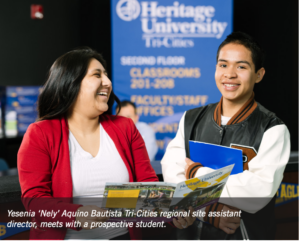 “Students will have the opportunity to transfer seamlessly between campuses, and some classes may be offered in a hybrid format where classes are delivered both in-class and online between the two campuses. The linkage between the two campuses will present a tremendous range of possibilities for students to study in their field of interest,” said Sund.
“Students will have the opportunity to transfer seamlessly between campuses, and some classes may be offered in a hybrid format where classes are delivered both in-class and online between the two campuses. The linkage between the two campuses will present a tremendous range of possibilities for students to study in their field of interest,” said Sund.
Martín Valadez, the director of Heritage University’s regional site in the Tri-Cities, said the move will make it easier for students to achieve their goals of pursuing higher education.
“Many Tri-Cities students are raising their families as they work several jobs, and we know they will benefit from having this additional opportunity to earn a four-year degree close to home,” he said. “We are excited to play a larger role in the firmament of higher education in the Tri-Cities and be a part of the revitalization of downtown Kennewick.”

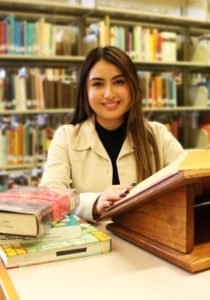
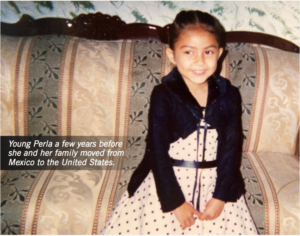
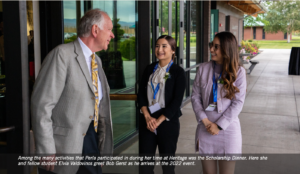

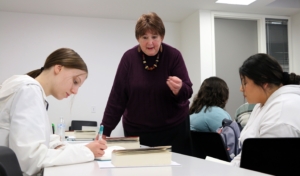
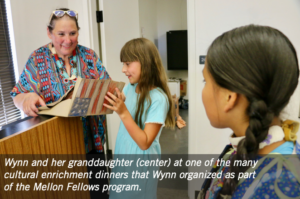
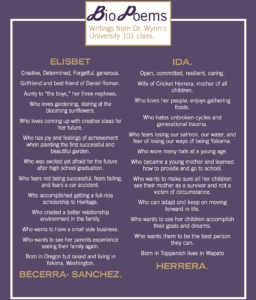
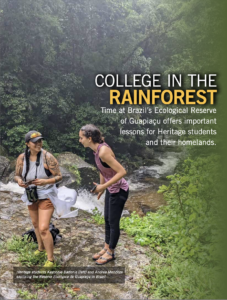
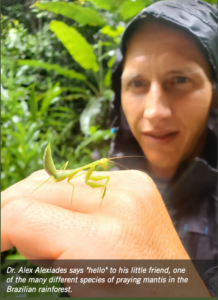
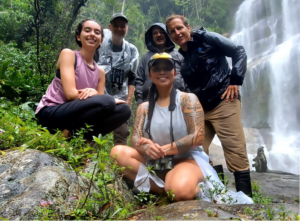 In the native Tupi language, Guapiaçu means “big spring of a river.” But the river here, like the rainforest that holds it, has been greatly altered, its banks laid bare for farming and grazing cattle, its flow in part channeled for human use, sometimes reinforced with concrete.
In the native Tupi language, Guapiaçu means “big spring of a river.” But the river here, like the rainforest that holds it, has been greatly altered, its banks laid bare for farming and grazing cattle, its flow in part channeled for human use, sometimes reinforced with concrete.